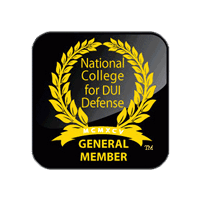DWI from Drugs Not Alcohol 
You can be arrested and charged with a DWI in North Carolina even if your blood alcohol level (BAC) is 0.0%. Most people associate driving while impaired (DWI) or driving under the influence (DUI) with just alcohol. However, DWI laws state you can be found unsafe from any impairing substance. Impairing substances can include alcohol, drugs (prescription or illegal), or any combination thereof. We are a country with the most heavily medicated population on the planet. Doctors prescribe prescription drugs for almost anything. And many of those prescription medications can impair your ability to safely drive or operate machinery. Many prescription bottles even carry these warnings on the side. Nevertheless, people take their meds for pain, mood, depression, anxiety, focus, etc. and think nothing about getting behind the wheel. Drug-based impairment has become such an issue that mzny police departments, including the Charlotte Mecklenburg Police Department, have begun to train and employ Drug Recognition Experts (DRE) officers. These specialized DWI members have undergone over 80 hours of focused training on how to detect, investigate, and then prosecute those individuals accused of DWI based on drug impairment. In defending these type of DWI cases, it is even more critical that you have a seasoned, experienced DWI lawyer in your corner. These police officers are experts in their fields and focus almost exclusively on DWI cases. At trial, their testimony is fact specific and physiologically based. Without proper knowledge of human physiology and police procedures, a novice attorney is significantly disadvantaged and potentiall ineffective. Better make sure your DWI attorney knows how to respond to DRE investigative notes and trial testimony.
Charlotte DWI Attorney Robert J. Reeves is a 25 year veteran trial lawyer who is also a former Registered Nurse (RN). As a result of his experience and
medical training, he is able to cross-examine DRE officers and challenge their findings. Mr. Reeves will carefully review all physical evidence in your case and also determine if you have any medical conditions that may explain or even mimick impairment. For example, some individuals have a natural nystagmus which can affect your Horizontal Gaze Nystagmus (HGN) testing. Others may have inner ear problems that will prevent them from properly performing the Walk and Turn (WAT) or One Leg Stand (OLS) results. And, certain medications that one might think would impair the ability to drive actually have no effect at all. These sometimes subtle facts can make all the difference between a finding of guilt or innocence.
For a private, confidential consultation about your case, call Mr. Reeves directly at 704-351-7979 or email Robert@RJRlaw.com.
